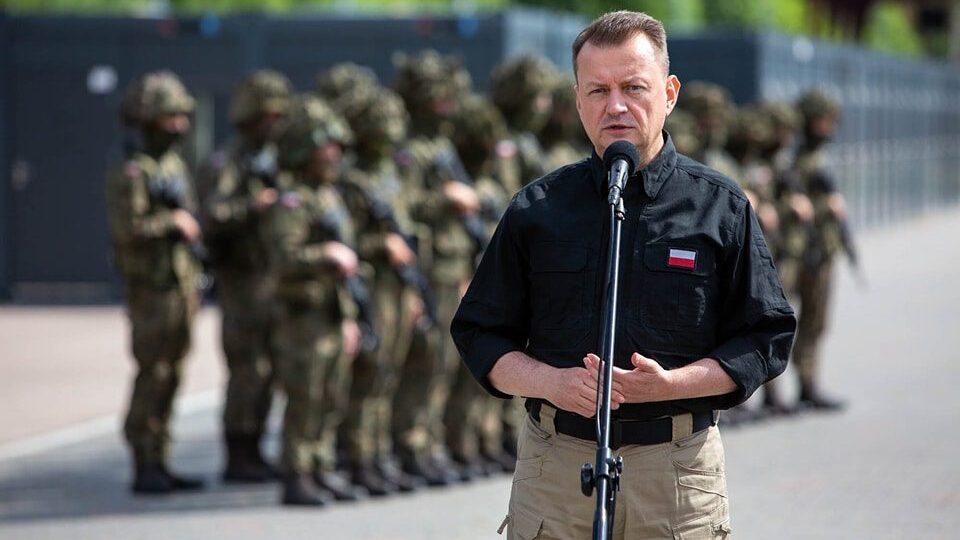
Polish Defense Minister Mariusz Błaszczak
The fourth and final question of the Polish referendum, to be held together with the upcoming parliamentary elections this fall, would ask voters whether to keep in place the border protection infrastructure erected on the country’s eastern frontier with Belarus since early 2022, Polish Defense Minister Mariusz Błaszczak announced on Monday, August 14th.
“The most important issues, those that concern security, should be decided by citizens. Poland could become Putin’s next target, and our security is under real threat,” Błaszczak stated in the video posted on the ruling Law and Justice (PiS) party’s social media. “That’s why we are consistently strengthening the Polish Army and building a barrier on the border with Belarus and Russia.”
According to the announcement, the fourth question of the referendum will be “Do you support the removal of the barrier on the border of the Republic of Poland with the Republic of Belarus?” After the fashion of the other three questions, the conservative government expects the majority to vote “No” and thus strengthen the legitimacy of the border fence.
Poland began to build the fence after Belarus started to artificially amplify the migration crisis in late 2021 by shipping asylum seekers from the Middle East straight to the Polish border. The 187 km long barbed wire fence, complete with regular armed patrols, was completed by July 2022 but it has been periodically fortified ever since, especially since the presence of the Wagner forces has been detected in Belarus.
During the planned referendum, the government will also ask Polish voters whether they support the sale of state-owned enterprises, raising the retirement age, and adhering to the EU’s migrant redistribution scheme under the new Migration Pact, which was decided by the European Council without the consent of Poland and Hungary.
The third (and most anticipated) question on the Migration Pact was revealed by Prime Minister Mateusz Morawiecki on Sunday, August 14th, and—expecting a clear “No” from the majority—will be phrased as:
Do you support the admission of thousands of illegal immigrants from the Middle East and Africa, in accordance with the forced relocation mechanism imposed by the European bureaucracy?
The mechanism in question—dubbed “compulsory solidarity”—would force countries to either accept their share of asylum seekers or pay €20,000 per migrant into a common EU fund. Although adopted by qualified majority voting by the bloc’s EU affairs ministers, the Migration Pact ended up in a deadlock after Poland and Hungary refused to sign off on it at the EUCO Summit in late June, which required a unanimous vote.
With all four questions now public, the referendum is only waiting for approval from the parliament’s lower house (Sejm), which will hold a two-day session later this week to debate and decide whether to go ahead with the government’s plans. The motion will likely pass, and the four questions will be posed to the populace on election day, October 15th.
Holding specific votes on the most problematic issues in the country’s relationship with Brussels (and therefore equipping the government with something tangible to be used against forced policies) could be considered in a way as following the Hungarian model. Budapest also held several referenda and ‘national consultations’ on matters of sovereignty. The 2016 referendum, for instance, resulted in 98% of participants rejecting forced migrant relocations, although the vote was annulled due to low turnout (43%).
Naturally, the Polish government has been criticized from abroad for planning to hold the referendum on the same day as the parliamentary elections, thus all but ensuring a sufficient turnout. A few Western diplomats in Brussels even hinted that such a vote could eventually trigger a Brexit-like movement in Poland.
Nonetheless, the Polish government regards the question as a fundamental issue of sovereignty and vowed not to accept any migration edict from Brussels that goes against the will of the voters. As Defense Minister Błaszczak also stated in his address, “it is always the voice of ordinary Poles that is decisive.”
